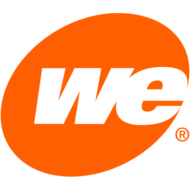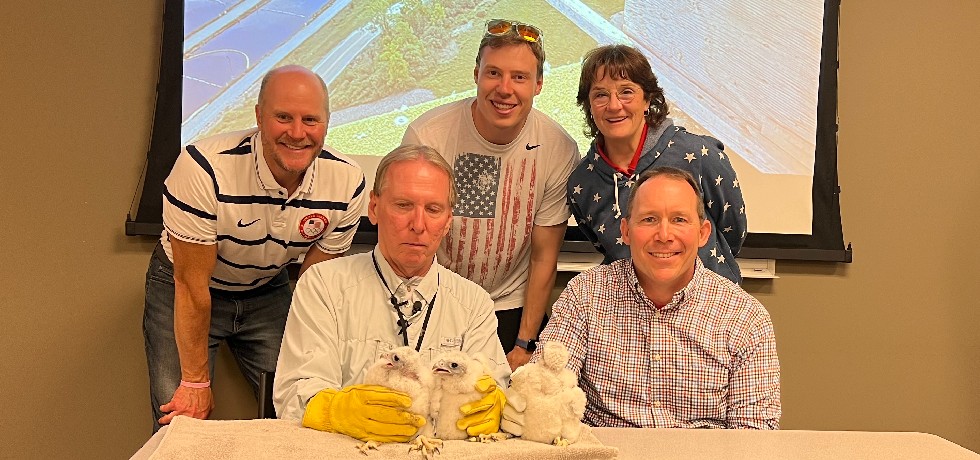The fastest animals on the planet have officially been named after some of the fastest people on the planet. We Energies and Wisconsin Public Service (WPS) are celebrating a gold medal-worthy year for their popular peregrine falcon program. People around the world tuned in to live web cameras to watch these endangered birds hatch, grow and learn to fly.
To help count down to the 2024 Paris Olympics, customers voted to name this year’s falcon chicks after Wisconsin Olympic medalists.
So far, eight chicks have hatched and were given their identification bands. Two more eggs are expected to hatch at the Weston Power Plant in June.
Here are the facts about this year’s falcon families:
Oak Creek Power Plant
Proud parents Essity and an unbanded male falcon welcomed three chicks. This is their first year nesting together.
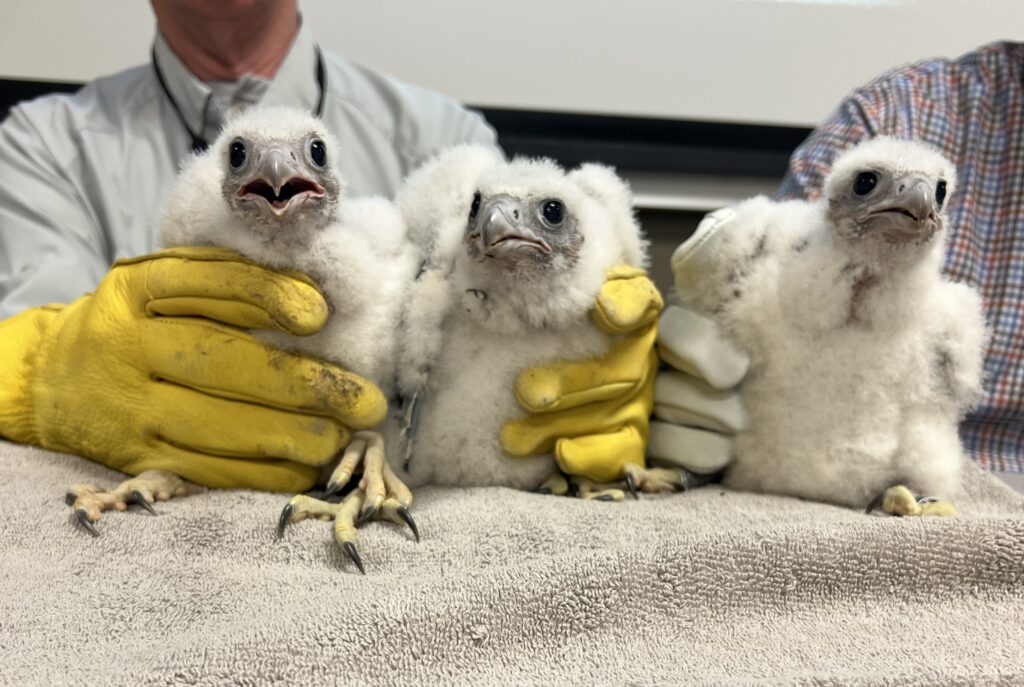
Their chicks were named after some of Wisconsin’s best speedskaters:
- Birdie Blair, in honor of five-time gold-medalist Bonnie Blair.
- Fitz, in honor of Casey FitzRandolph, a Verona native who won gold in at the 2002 Winter Games.
- Glider, in honor of Brian Hansen, who won silver at the 2010 Winter Games.
All three Olympians were in attendance for a special banding ceremony, where the falcons had identification bands placed on their legs. They agree this honor strengthens their bonds as athletes.
“I’ve heard about the peregrine falcon project for a long time as it pertains to We Energies and WPS, but I didn’t know that we would ever be a part of that,” FitzRandolph said. “So when we got asked, it was a no-brainer for me … I’m thrilled to be a part of it.”
“As an Olympian, one of the taglines is, ‘Once an Olympian, you’re always an Olympian,’ so I think all of us together feel pretty special,” Blair said. “[This] is just a super cool thing that we can all share together.”
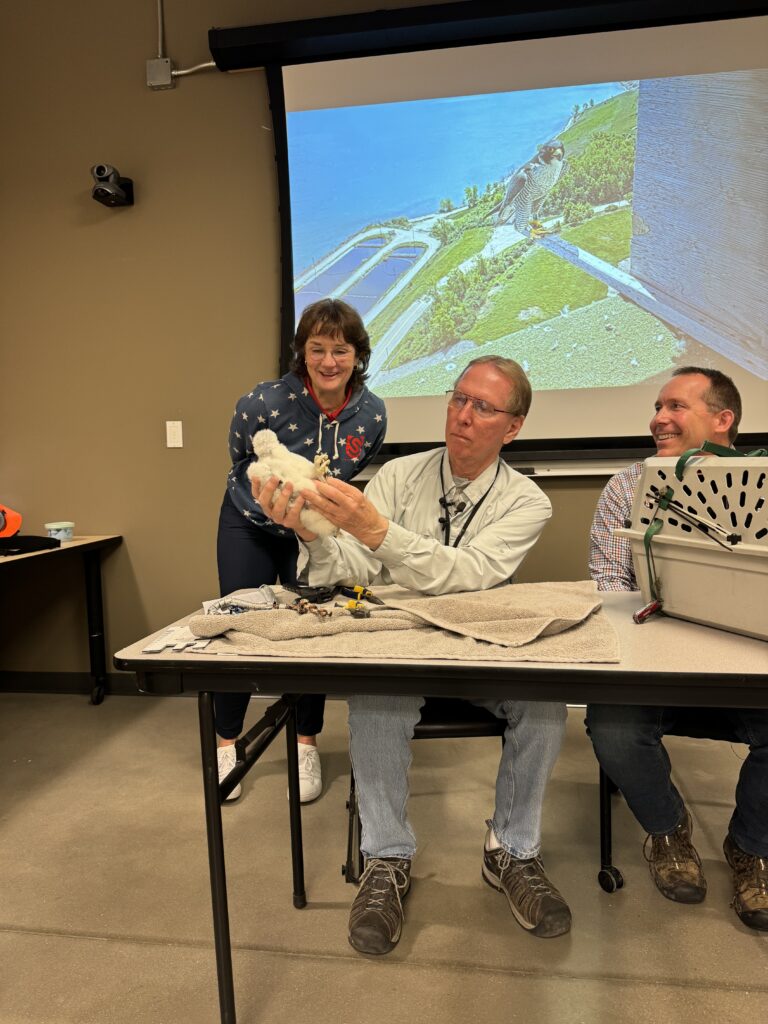
Port Washington Power Plant
Brinn and Beasley celebrated their eighth anniversary together at the Port Washington nest box this year. They also welcomed three chicks.
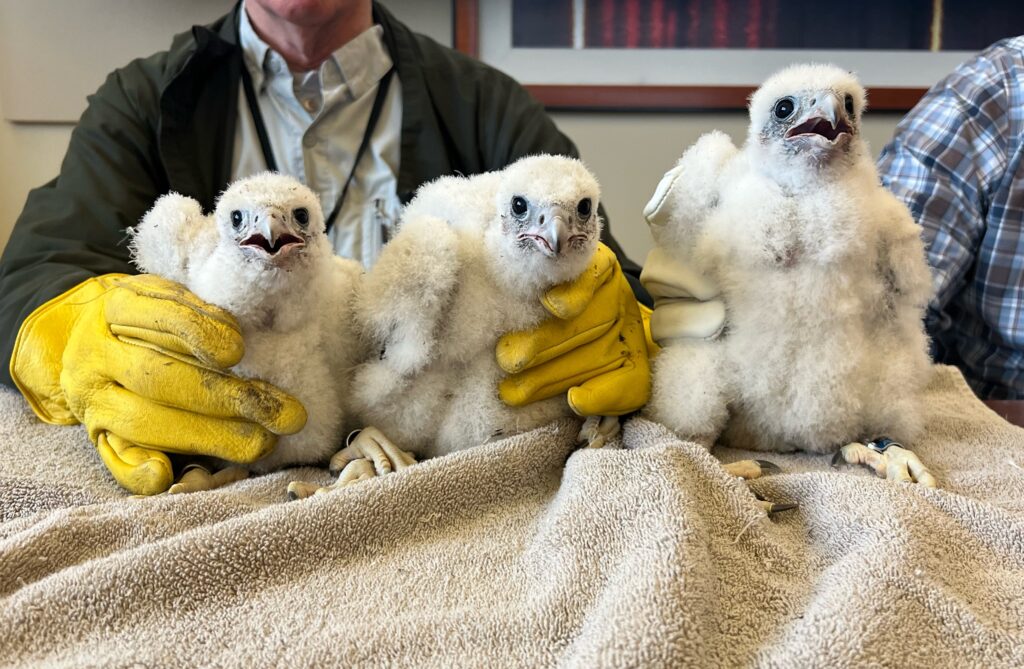
Two-time gold-medal Paralympian Jake Williams watched proudly as one of the chicks was named Warrior in honor of Wisconsin’s Paralympic athletes. Williams will represent Team USA in wheelchair basketball again this summer. Warrior’s siblings were named Hero, in honor of Special Olympics Wisconsin athletes, and Puck, in honor of the many University of Wisconsin-Madison grads who have played on the women’s national hockey team.
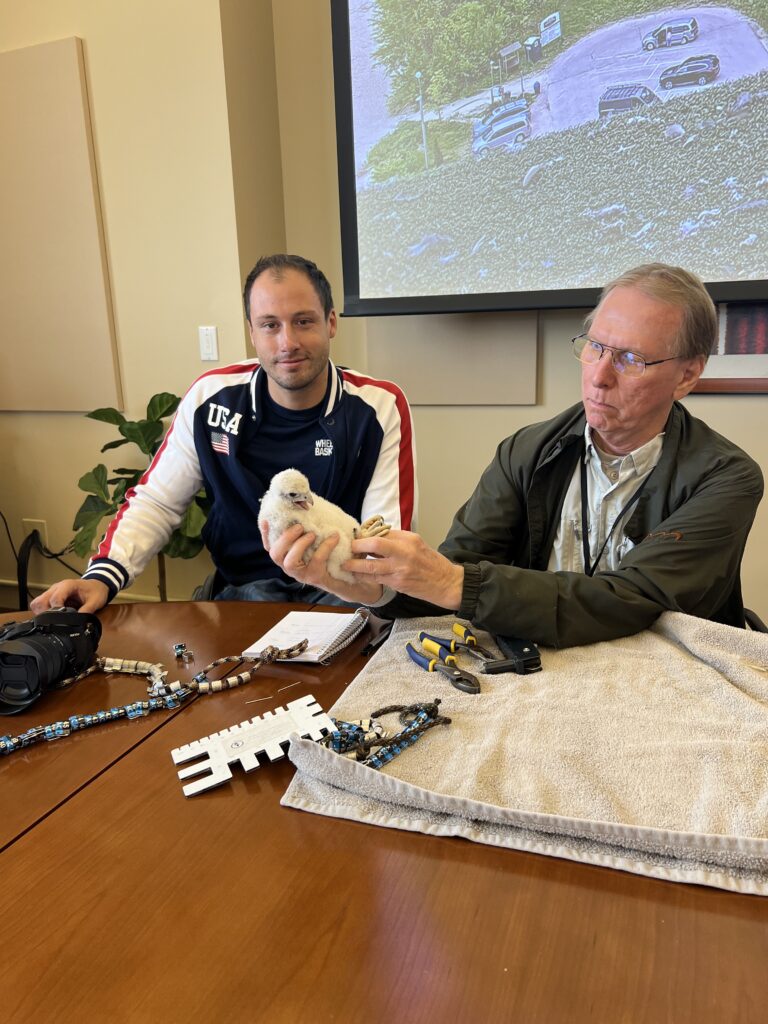
Valley Power Plant in Milwaukee
Rolo and an unbanded female welcomed two chicks this year. It’s believed the pair has been nesting together in Milwaukee for two years, although the female likely has been present since 2014.
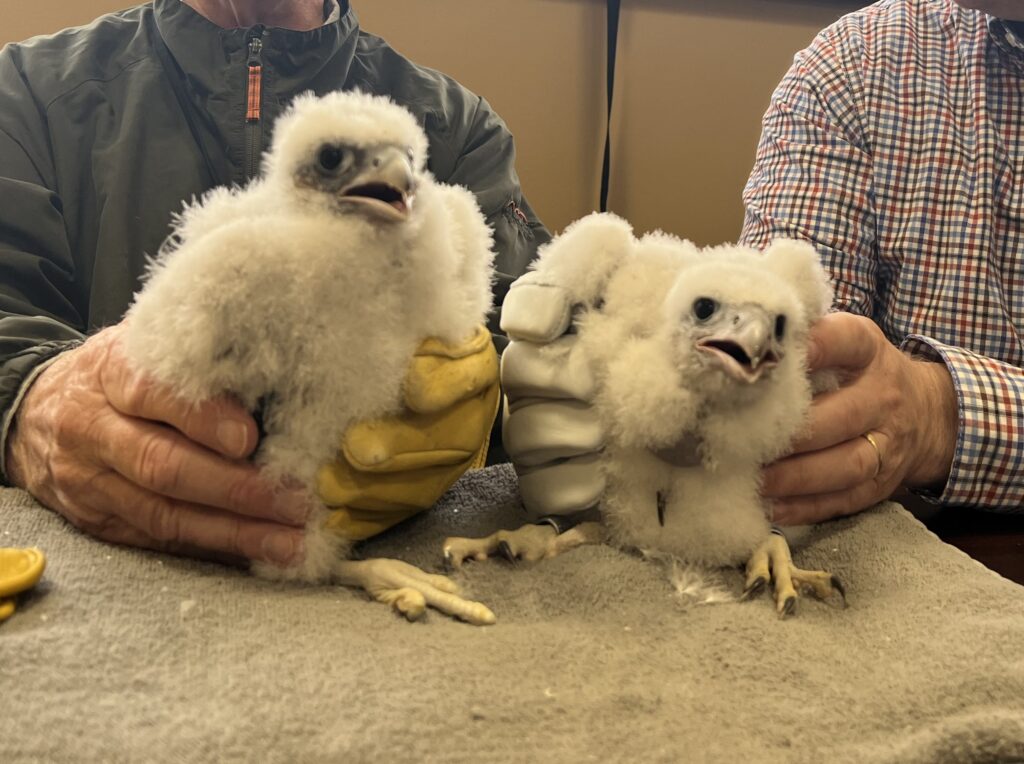
Their chicks were named Trapper, after trap shooter and Waterford native Madelynn Bernau, and Khash, after gold-medal and NBA championship-winning basketball star Khris Middleton.
Bernau got to meet her namesake at a small banding ceremony in front of power plant employees before joining the other Olympic athletes in Oak Creek.
“With me competing in a shooting sport, [conservation] is a huge part of what we stand for — conserving the environment as well as the animals that inhabit it,” Bernau said. “I just love supporting these things and being a part of them.”
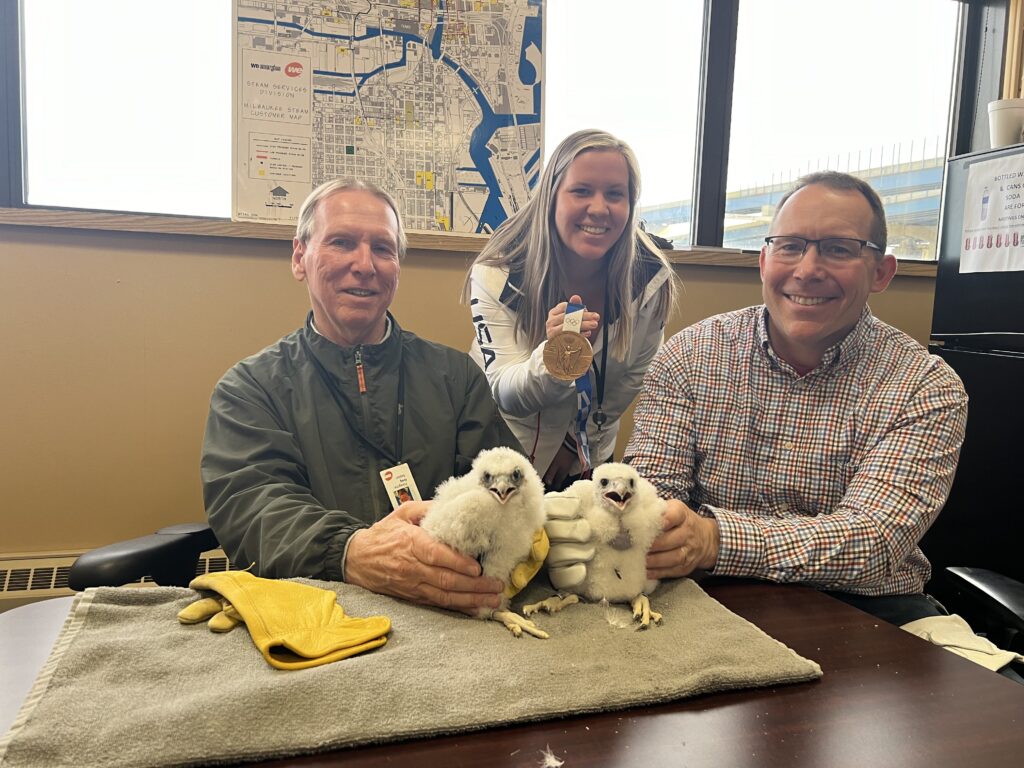
Weston Power Plant in Rothschild
Sheldon and an unbanded female are waiting on two eggs to hatch. This is Sheldon’s eighth year nesting at the Weston Power Plant, and the first for the unbanded female.
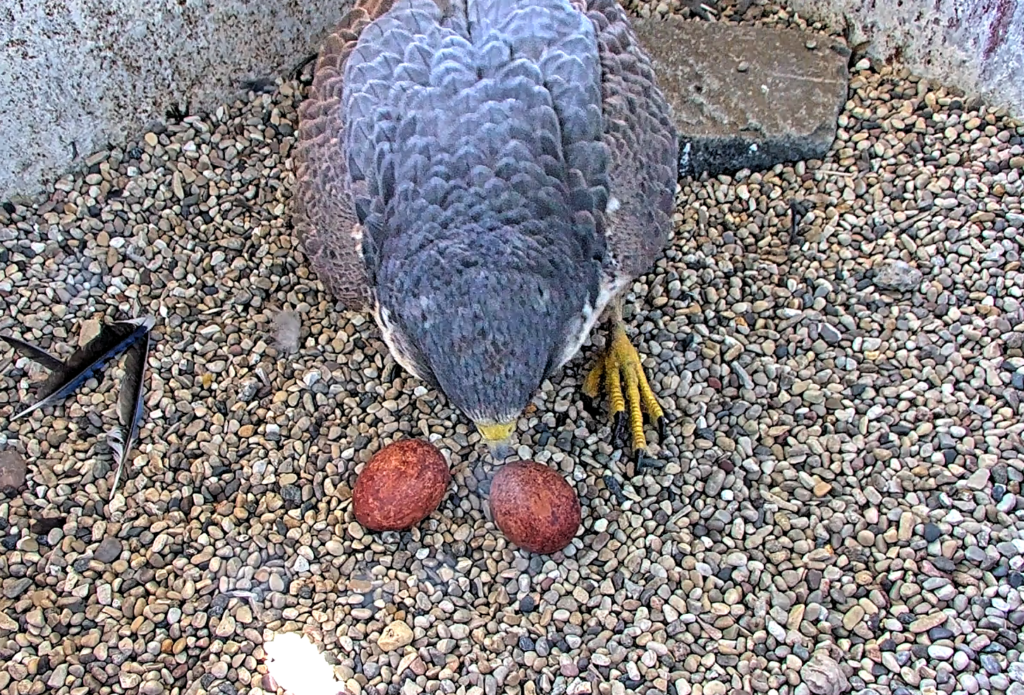
About the banding ceremonies
Banding the chicks is a crucial step in peregrine falcon recovery efforts each year. The companies’ peregrine falcon manager places small metal bands on the chicks when they’re about three weeks old. The bands allow people to identify each falcon by the combination of colors, letters and numbers. Birdwatchers can then contact the falcon manager and let him know they’ve spotted one of the peregrines in the wild.
Peregrine falcon program
We Energies and WPS began installing peregrine falcon nest boxes on power plants in the early ’90s. So far, 452 peregrine falcons have hatched at We Energies and WPS facilities — that’s 20% of all peregrine falcons born in Wisconsin.
This program is another way We Energies and WPS are building a bright, sustainable future. From helping endangered animals and restoring natural habitats, to building new solar facilities and reducing carbon emissions, we are committed to a cleaner future.
